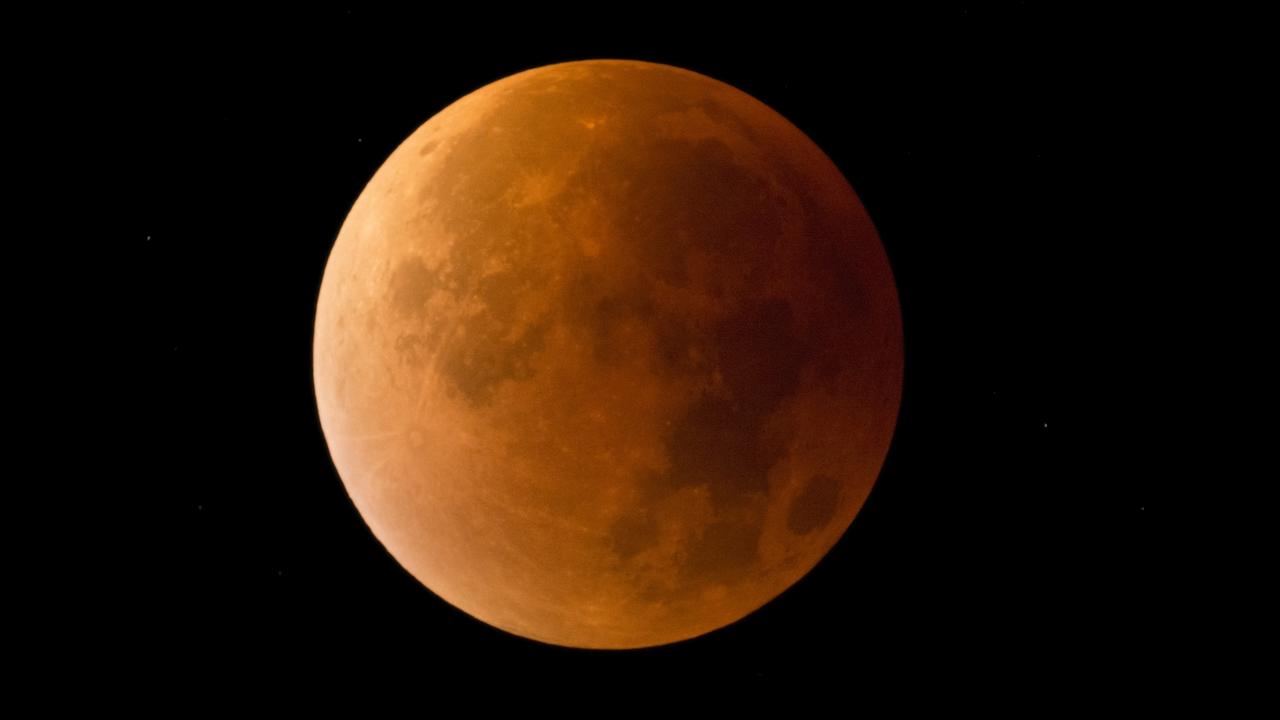How to photograph the lunar eclipse: 5 tips to make your blood red moon photos stand out
THE longest lunar eclipse this century is coming tomorrow morning but capturing it will be tricky. These five tips can secure your perfect moonshot.
IT WILL be the longest blood red moon appearance this century, giving photographers plenty of time to capture a stunning lunar eclipse.
But even though tomorrow’s lunar event will turn the moon crimson for one hour and 43 minutes, you should not need that entire time to perfect a portrait.
With the right equipment, a little preparation, and correct settings, you could surprise yourself and Instagram followers alike with the perfect moonshot.
RELATED: Myths and legends of the Blood Moon

Astrophotographer and Nikon School lecturer Steven Morris said the first step should be to “plan your shot,” and ask whether you want to capture the moon as it moves over a landscape or photograph it at its peak colour up close.
If you want to put the moon large in the picture, you’ll need a DSLR camera with a lens at least 200mm in length, though 400mm would be ideal.
Mr Morris also recommends photographers use a tripod to keep the camera steady, and use either a shutter release cable or the camera’s timer to prevent accidental movement when capturing the image.
Even in shadow, the moon can be bright against the dark sky and is notoriously difficult to expose correctly. It also moves too quickly to accommodate long exposures.
Mr Morris recommends using a camera’s manual mode, setting the aperture at f8 for clarity, maintaining a quick shutter speed, and only changing the camera’s light sensitivity.
“Set your shutter speed and don’t adjust it throughout the night — you want to achieve a nice clean sharp image. (A) shutter speed of around 1/250th of a second is a good start point,” he said.
“As the moon gets darker the only thing you want to adjust to get a nice exposure is your ISO.”

Photographers usually recommend a setting of f11 — it’s a setting dubbed “looney 11,” as in lunar — but this red moon is likely to be darker than normal.
That dim lighting may make it hard for some camera lenses to find sharp focus, Mr Morris said and, if so, photographers should switch to manual focus and use the camera screen to zoom into the image and adjust the lens focal ring.
Framing the red moon alongside a building or a tree will also give it some scale, and add more interest to the photo, he said.
If you don’t have a DSLR camera, and can’t borrow one for the event, there are creative ways to capture the red moon with a smartphone.
If you can secure your phone to a tripod (using a Joby Gorillapod or Manfrotto clamp, for example), you could capture a time lapse of the red moon as it sets.
Several manufacturers, such as Olloclip and Bitplay, also make external zoom lenses for smartphones that will magnify your subject and can help make the moon loom larger in the frame.

Phone photographers may also consider using apps such as Adobe Lightroom Mobile or Camera+ 2 to shoot in RAW format or better control exposure settings.
And, of course, all photographers will need to wake up in time and hope for good weather. The moon will start to turn red from 4.30am, will reach totality at 5.30am, and will set at 6.35am.
TOP PHOTOGRAPHY TIPS FOR A BLOOD RED MOONSHOT
— Use a DSLR with a 200mm lens or longer
— Employ a tripod and remote shutter release
— Set the aperture at f8, shutter speed at 1/250 sec, and change only ISO
— Focus on the moon manually using the camera’s rear screen
— Smartphone photographers should consider time lapse videos or mini lenses



